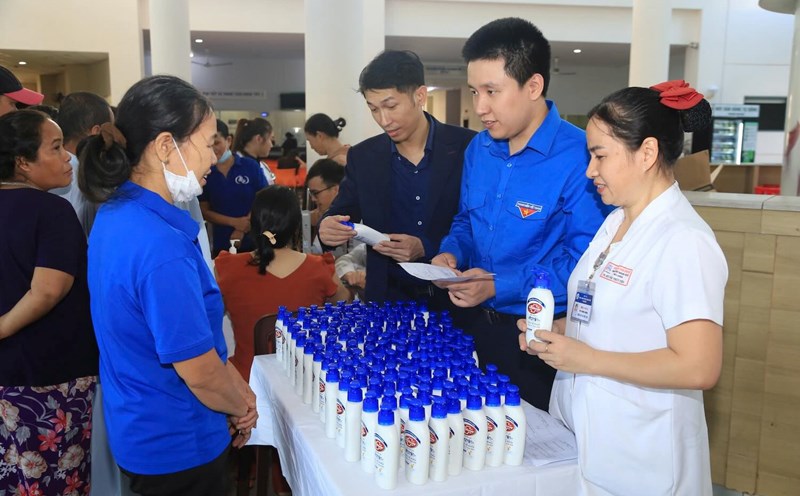Previously, on November 7, the Department of Neonatal Intensive Care - Newborn Pediatrics, Pediatric Center, Hue Central Hospital received a newborn patient (born on the same day) from Quang Binh province. Shortly after birth, the baby showed signs of early jaundice down to the soles of the feet, accompanied by severe anemia and bilirubin levels that skyrocketed to an alarming level.
After receiving the child, doctors at Hue Central Hospital urgently examined and conducted in-depth tests, concluding that the child had severe hemolytic anemia due to Rhesus blood group incompatibility between mother and child.
The child's mother has blood type B Rh(-) and anti-D antibodies (+), and the child has blood type B Rh (+). The Coombs test is highly positive. If not treated promptly, the disease can cause severe anemia, heart failure, and irreversible brain damage.
Doctors quickly took emergency measures. The team of doctors from the Neonatal Intensive Care Unit - Neonatal Pediatrics, the Clinical Hematology Department and the Board of Directors of the Pediatric Center held an emergency consultation and decided to perform a blood exchange for the baby through the umbilical artery - vein when the baby was 50 hours old.
The child received continuous blood transfusions for two hours, which were successful and did not encounter any complications. The patient began to show positive changes and continued to receive phototherapy and immunoglobulin infusions.
The alarming bilirubin level then dropped below the threshold for phototherapy. The child recovered day by day and is now alert and active. After 9 days of treatment, the child was discharged from the hospital to the happiness of doctors and relatives.
BSCKII. Nguyen Thi Thao Trinh - Deputy Head of the Department of Neonatal Intensive Care - Newborn Pediatrics, Pediatric Center - Hue Central Hospital - said: Rh factor incompatibility is a rare but extremely dangerous cause, which can cause pathological jaundice in newborns. Only 0.1-0.3% of Asians have Rh (-) blood type. If the newborn is not diagnosed, the mortality rate is 24%.
Pathological jaundice progresses rapidly, 13% of these children have kernicterus, 83% of whom are at risk of permanent neurological damage later if not diagnosed and treated effectively in time.
This condition occurs when the mother has the Rh(-) factor, while the father and the child have the Rh(+) factor. During pregnancy, some of the fetus's Rh(+) red blood cells can enter the Rh(-) mother's blood, stimulating the mother's body to produce antibodies against Rh(+).
These antibodies can cross the placenta into the fetus, destroying red blood cells and leading to severe hemolysis. This condition can cause severe anemia, severe jaundice, which can lead to many serious complications.
Phototherapy is the most effective and safe treatment for jaundice. Exchange transfusion is indicated when the child shows signs of neurotoxicity due to high levels of bilirubin in the blood.











